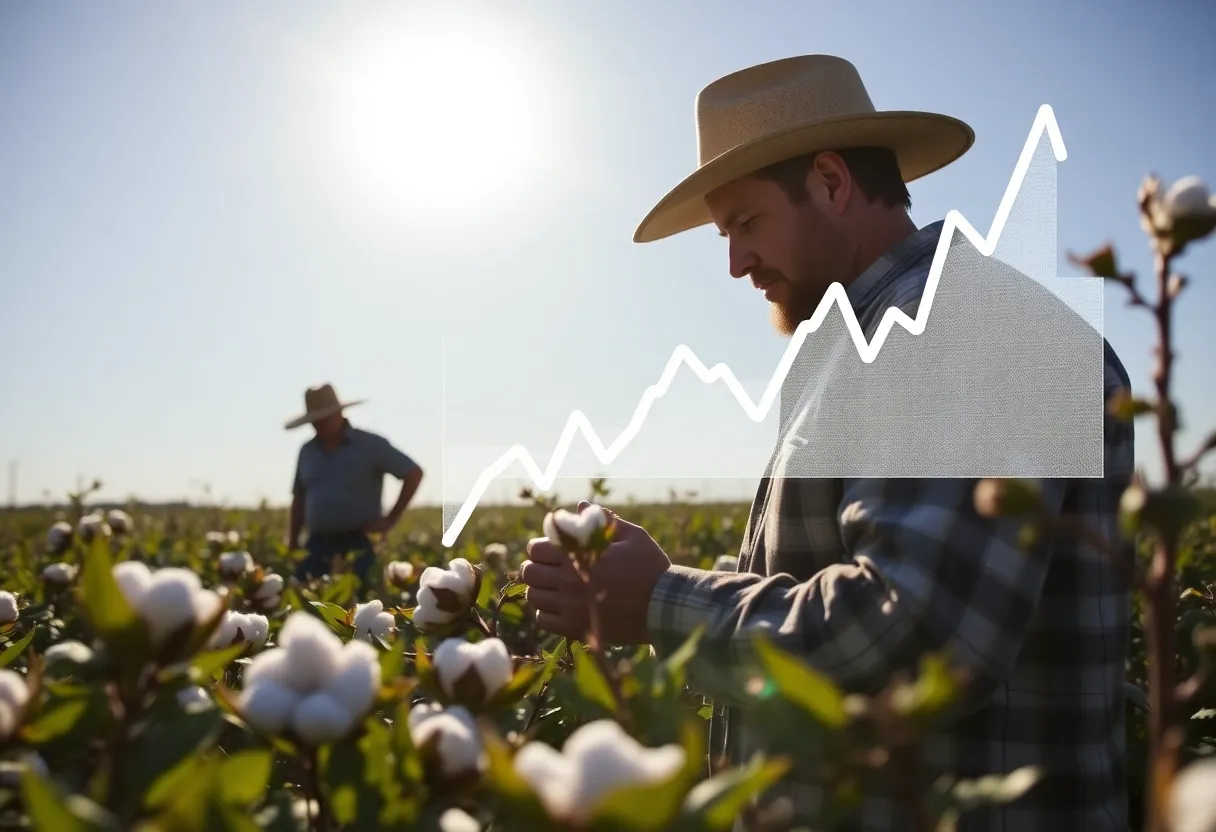

A cotton producer assesses the impact of market fluctuations on crops.
Article Sponsored by:
Real Internet Sales is a digital marketing agency located in Columbia, South Carolina. We specialize in website design and development, SEO, social media management, online advertising, AI integration, and workflow automation. Our services also include affiliate marketing and digital strategy.
Real Internet Sales also offer specialized programming for real estate firms, using IDX and RETS feeds to automatically populate MLS properties on their websites for improved property listings and sales. We also work with clients in the restaurant, tourism, and e-commerce industries to enhance their digital presence and streamline operations.
Want to target the right audience? Sponsor our site and choose your specific industry to connect with a relevant audience.
Prominent brand mentions across targeted, industry-focused articles
High-visibility placements that speak directly to an engaged local audience
Guaranteed coverage that maximizes exposure and reinforces your brand presence
Interested in seeing what sponsored content looks like on our platform?
May’s Roofing & Contracting
Forwal Construction
NSC Clips
Real Internet Sales
Suited
Florida4Golf
Click the button below to sponsor our articles:
Sponsor Our ArticlesThe 2024 cotton market presents various challenges for producers, including uncertainty in forward contracts, unexpected price drops, and the need for stronger selling foundations. Experts recommend adopting new strategies and committing to effective pricing plans to secure profitability. By acting decisively and utilizing innovative hedging practices, farmers can navigate current market fluctuations and create a stable future.
The cotton market is buzzing with activity as we move through 2024. Many cotton producers had high hopes for better prices this year, but as we dive deeper, the reality has proven to be a little more challenging than anticipated. Let’s explore what’s been happening and what farmers can do moving forward.
One of the significant issues that have arisen in 2024 is the noticeable lack of forward contract work. Many farmers are left scratching their heads, trying to figure out their marketing decisions without the security of contracts. This uncertainty can lead to serious consequences for those who aren’t prepared.
Imagine the surprise when the cotton market unexpectedly dipped below 80 cents. Many producers found themselves in a tight spot, as they were not prepared for such a downturn. In times like these, it becomes evident which farmers acted decisively. Those who chose to sell their cotton as prices began to slide are now looked at as wiser decision-makers.
Barry Bean, a seasoned cotton broker from Peach Orchard, Mo., emphasizes the importance of having strong bases for spot cotton delivery. Having this solid ground is crucial for maintaining consistent selling patterns, allowing farmers to sell at opportune moments rather than just when they feel pressured to act.
For those optimistic about the market and bullish on futures, Bean recommends considering the purchase of call options. These financial instruments can serve as a safety net against unpredictable market swings. While many farmers are comfortable using options to hedge grain prices, there seems to be a reluctance to apply the same strategies to cotton. This reliance on outdated methods could be holding producers back.
One critical takeaway from the current market conditions is the necessity for farmers to commit to firm pricing strategies based on their profitability goals. Without a clear strategy, producers may find themselves wasting valuable time chasing after small price discrepancies, rather than securing favorable prices. It’s easy to get caught up in the hope of a better deal, but sometimes it pays to just lock in what you have.
Market fluctuations can be unforgiving. Producers who hesitate to act decisively risk substantial losses. In the world of cotton farming, timing can make a world of difference, and farmers must stay alert and ready to make critical decisions.
Bean strongly believes that learning and employing basic hedging practices could lead to much better outcomes for cotton marketing. As with any industry, knowledge is power, and understanding financial tools available to farmers can help them weather storms and seize opportunities. The sooner producers become proactive about their marketing strategies, the better positioned they will be for future seasons.
The year 2024 may have presented its share of challenges for cotton producers, but it could also be an opportunity to learn and adapt. By embracing new strategies, committing to pricing plans, and utilizing hedging techniques, farmers can create a more stable and profitable future for themselves in the cotton market.
Staying informed and being proactive is the key to navigating the ever-changing landscape of cotton farming. Here’s hoping for a more predictable and prosperous season ahead!
Beef and Pork Exports Plummet to Lowest Levels of Marketing Year in the Midwest

7001 St Andrews Rd #329 ,
Columbia, SC 29212,
United States
Phone: (+1) 803 708 5514
News Summary Guitarist and activist Ted Nugent appeared before a Michigan House committee to express…
News Summary Authorities in Berrien County, Michigan, are investigating a package theft incident from residential…
News Summary Michigan's unemployment rate decreased slightly from 5.5% in April to 5.4% in May,…
News Summary In Michigan, seven companies have announced significant layoffs affecting approximately 700 workers this…
Basement Renovation Costs Explained: What to Expect and How to Save A basement renovation can…
News Summary Novi, Michigan now features Putting Edge, an immersive glow-in-the-dark mini golf venue that…